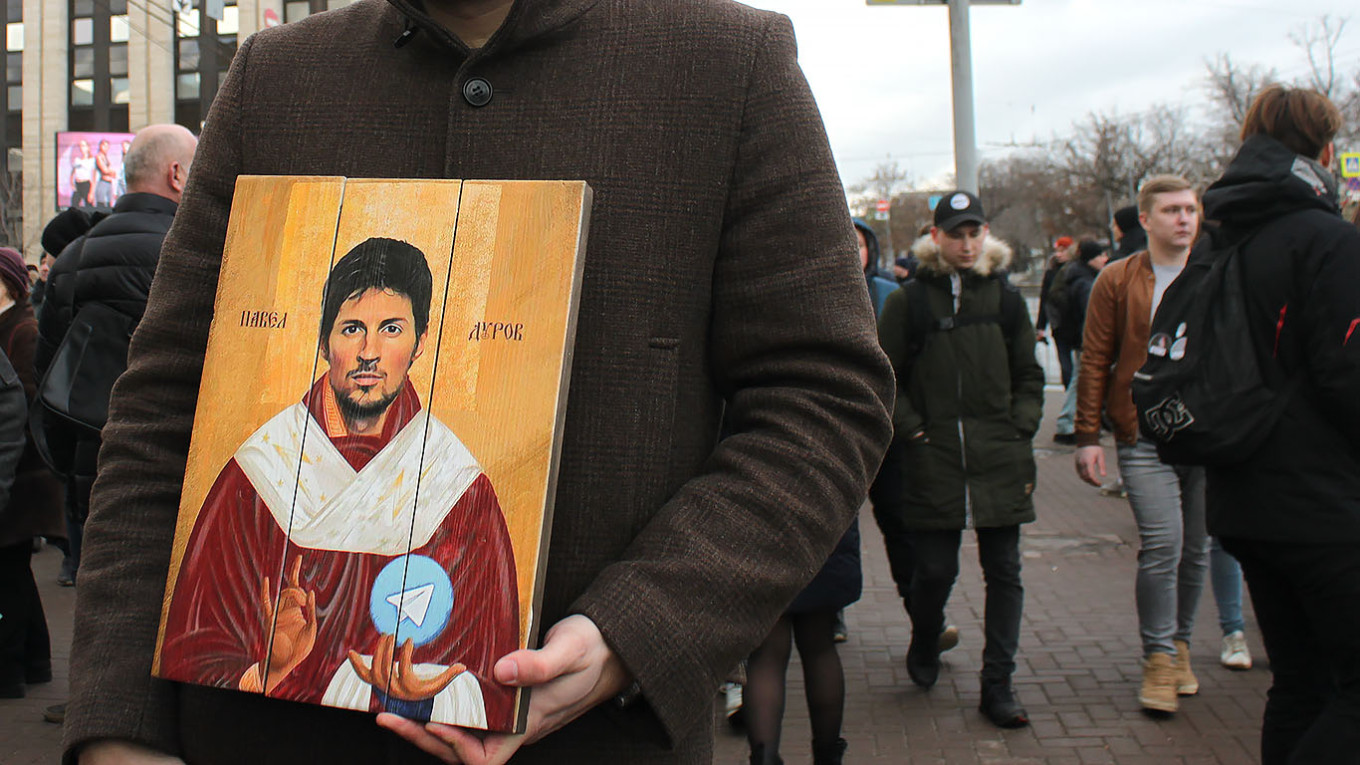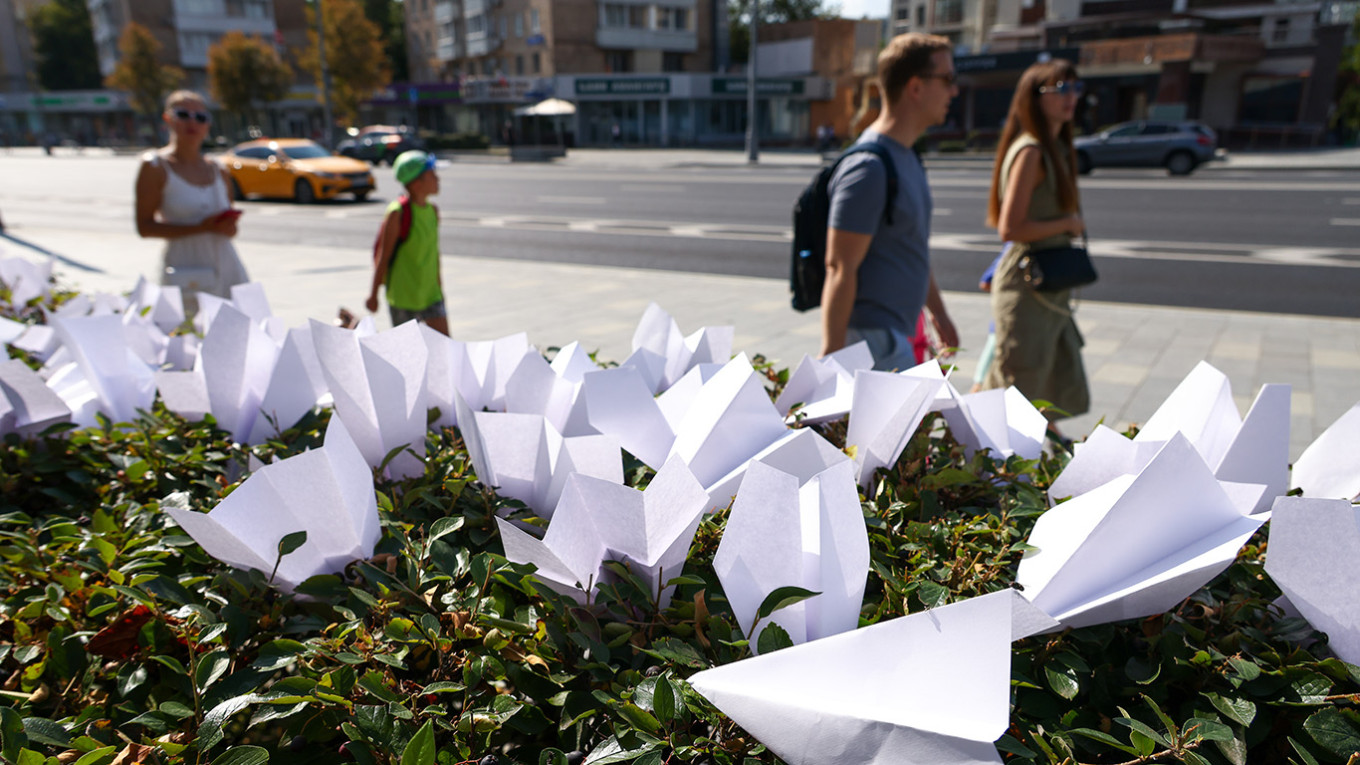France’s criminal case against Telegram founder Pavel Durov has raised fears among Russian users about their digital privacy and in some cases deepened distrust toward Western authorities.
The Russian-French billionaire was detained at a Paris airport last month on charges of enabling criminal activity on Telegram. He was later released pending an investigation but is barred from leaving France.
According to independent polling, Telegram is the second most popular messaging app in Russia after WhatsApp, with over 60 million users.
For many, the app is interwoven into everyday life. It is a means of contacting friends and family, a news platform and a space to promote one’s business — all with the promise of privacy at a time when dissent is effectively outlawed.
“Almost 90% of my contacts are here [on Telegram] — all my work chats and conversations with friends, all the channels, bloggers and bots based on my interests,” said Diana, a doctor from the republic of Udmurtia in the Volga region.
Her name, like those of others interviewed for this article, has been changed for safety reasons given The Moscow Times' status as a banned “undesirable” organization.
Among ordinary Russians, the criminal case against Durov has reignited concerns that messages they thought were private may no longer be confidential, as both Russian and Western politicians appear keenly interested in the case.
“I don’t want there to be a file on me that could harm me. [Accessing my messages] violates my right to confidential communication and creates potential risks," said Ivan from Moscow.

Diana said she stopped sharing sensitive personal information on the app even before Durov was detained.
"Since chats started leaking on WhatsApp, I stopped trusting any messengers, including Telegram," Diana said.
When asked about these concerns, Anton, a business owner from the city of Saratov in southern Russia, said he is wary of both Western law enforcement agencies and their Russian counterparts.
“A sacred place is never empty. If Telegram is not in the hands of countries that stand for a free world and are governed by the rule of law with strong civil institutions, then it will end up in the hands of authoritarian states with all the consequences that come with it,” said Anton, 35.
Ivan from Moscow said the case has eroded his perception of Western authorities.
"I had no doubt that Western intelligence agencies, like Russian ones, also want to control social networks, but I believed that, unlike the Russian ones, they would at least maintain the appearance of legality," Ivan said.
Mikhail, a student from St. Petersburg, said that his opinion of the West has not changed since Durov’s detention because "nothing surprising has happened.”
“Intelligence agencies are doing their job. France is a wonderful and beautiful country, just like many other Western countries,” Mikhail, 22, told The Moscow Times.
In contrast, Yekaterina, an unemployed resident of Moscow, was more skeptical of France’s intentions.
"I believe that Western intelligence agencies, like Russia's Federal Security Service, are trying to pressure Durov to gain access [to Telegram],” Yekaterina said.
“I think they will succeed," she added.
With reporting by Ned Garvey and Mack Tubridy.
A Message from The Moscow Times:
Dear readers,
We are facing unprecedented challenges. Russia's Prosecutor General's Office has designated The Moscow Times as an "undesirable" organization, criminalizing our work and putting our staff at risk of prosecution. This follows our earlier unjust labeling as a "foreign agent."
These actions are direct attempts to silence independent journalism in Russia. The authorities claim our work "discredits the decisions of the Russian leadership." We see things differently: we strive to provide accurate, unbiased reporting on Russia.
We, the journalists of The Moscow Times, refuse to be silenced. But to continue our work, we need your help.
Your support, no matter how small, makes a world of difference. If you can, please support us monthly starting from just $2. It's quick to set up, and every contribution makes a significant impact.
By supporting The Moscow Times, you're defending open, independent journalism in the face of repression. Thank you for standing with us.
Remind me later.







